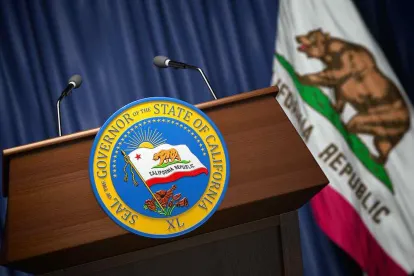California’s active legislative year has finally come to a close, with Governor Gavin Newsom signing several new laws to further regulate the workplace. Summarized below are the laws expected to most significantly impact California employers. Unless otherwise stated, these new laws take effect January 1, 2023.
Bereavement Leave
Beginning January 1, 2023, California employers will be required to provide up to five days of unpaid bereavement leave to employees upon the death of a “family member” (defined as a spouse or a child, parent, sibling, grandparent, grandchild, domestic partner, or parent-in-law). While the leave may be unpaid, employers must allow employees to use accrued vacation, personal leave, accrued and available sick leave, or any other compensatory time off that is otherwise available. The new law also requires employers with existing bereavement policies with fewer than five days total to provide additional unpaid days so that employees have up to the five days required by the new law.
“Designated Person” for CFRA and California Paid Sick Leave
Beginning January 1, 2023, employees can “designate” an individual for the purposes of using leave under the California Family Rights Act or paid sick leave. Notably, however, the definition of “designated person” differs slightly based on the law providing the leave.
-
Under the CFRA, a “designated person” is defined as “any individual related by blood or whose association with the employee is equivalent of a family relationship.”
-
For paid sick leave purposes, “designated person” is defined as “a person identified by the employee at the time the employee requests paid sick days.” Note there is no requirement the individual be related by blood or the equivalent of a family member.
In both instances, employers may limit an employee to one “designated person” per 12-month period (and employers may require employees to identify the “designated person” when they request CFRA leave), but again, there is no requirement the “designated person” be related by blood or effectively a “family member” for an employee to use paid sick leave.
Expansion of Pay Data Reporting and Pay Scale Posting Requirements
California has some stringent new laws for employers with 100 or more employees. As discussed in more detail here, SB 1162 amends and expands pay data reporting requirements to include information on wages and pay scale by race, ethnicity, and gender. In addition, SB 1162 requires employers with 15 or more employees to include the pay scale in all job postings and to make pay scale information available to current employees, upon their request.
Protections for Off-Duty Cannabis Use
Effective January 1, 2024, employers will be prohibited from discriminating against employees and applicants for cannabis use while off the job, with some exceptions. Employers may take action against a person who fails a pre-employment drug test, or other employer-required drug test, that does “not screen for non-psychoactive cannabis metabolites.” This new law does not apply to employers in the construction industry, or positions requiring federal background clearance, nor does it preempt state or federal laws requiring employees to be tested for controlled substances.
Protection from Adverse Employment Actions for Absences During Emergency Conditions
SB 1044 will prohibit employers from threatening or taking adverse employment actions against employees for refusing to report to work, or leaving early, during an emergency condition, because the employee has a “reasonable belief that the workplace is unsafe.” “Emergency condition” is defined as conditions of disaster or extreme peril to the safety of persons or property at the workplace caused by natural forces or a criminal act, or an order to evacuate the workplace due to natural forces or a criminal act. Notably, the definition specifically excludes “health pandemic” from the definition. The new law also excludes certain employees, including first responders, disaster service workers, specific health care facility employees, and others.
SB 1044 also prohibits an employer from preventing any employee from accessing their mobile device or other communications device to get emergency assistance, assess a situation’s safety or communicate with someone to verify their safety.
COVID-19 Updates: Exposure Notice
Included with the newly signed legislation are several updates to California’s COVID-19 requirements, including an expansion to 2022 COVID-19 Supplemental Paid Sick Leave through December 31, 2022, and changes to exposure notice requirements. These updates are discussed in more detail here: Gov. Newsom Extends California COVID-19 Supplemental Paid Sick Leave Through December 31, 2022 – and Other COVID-19 Updates (US).




 />i
/>i
